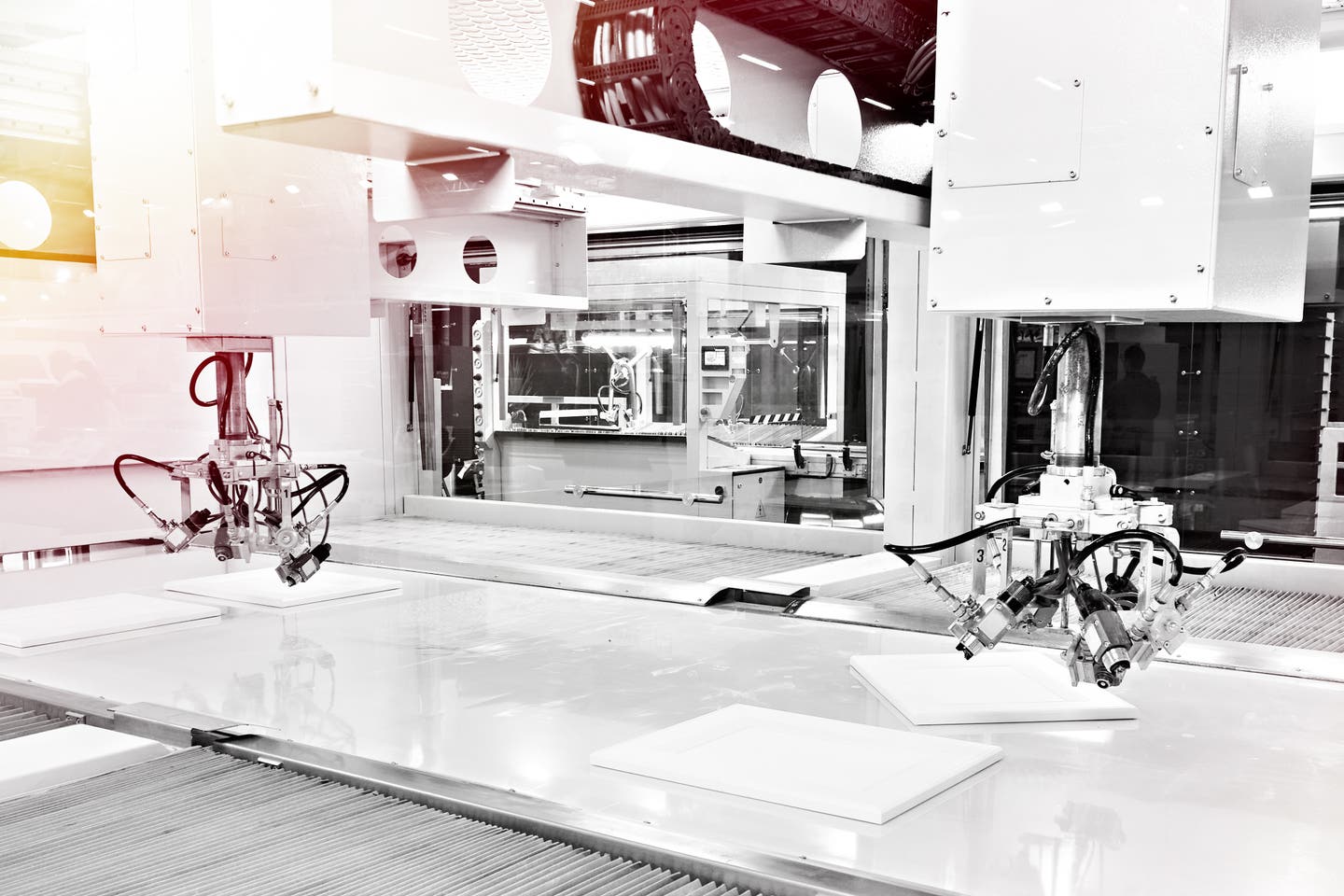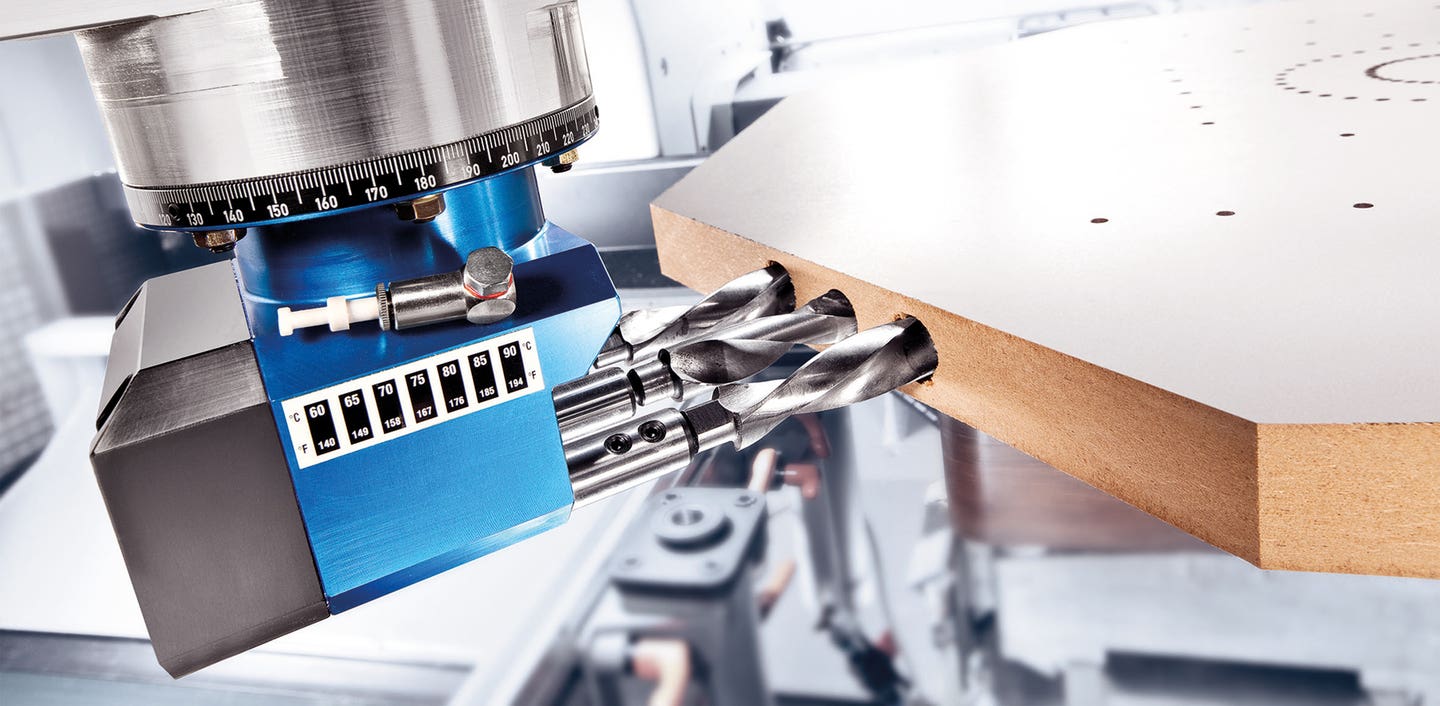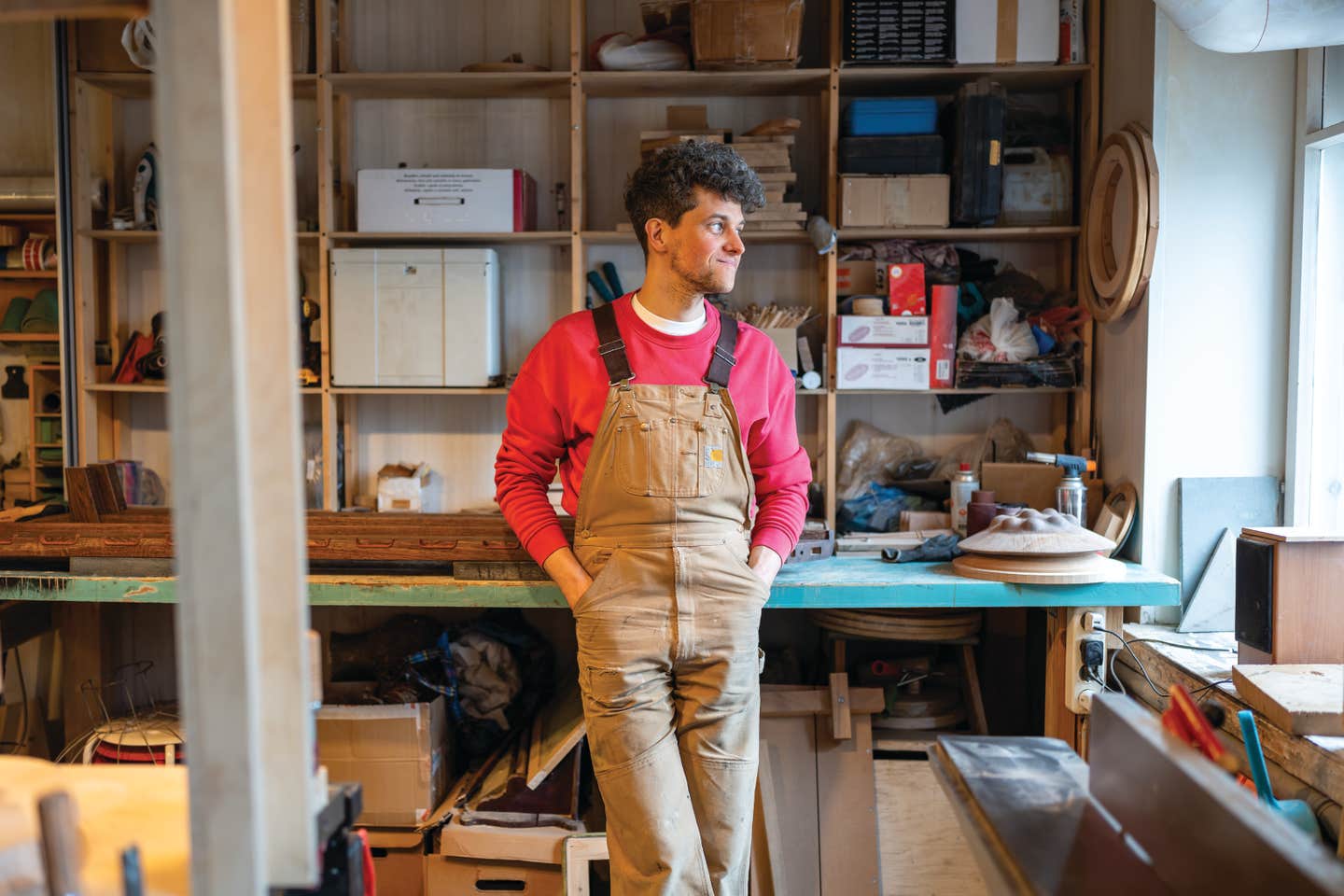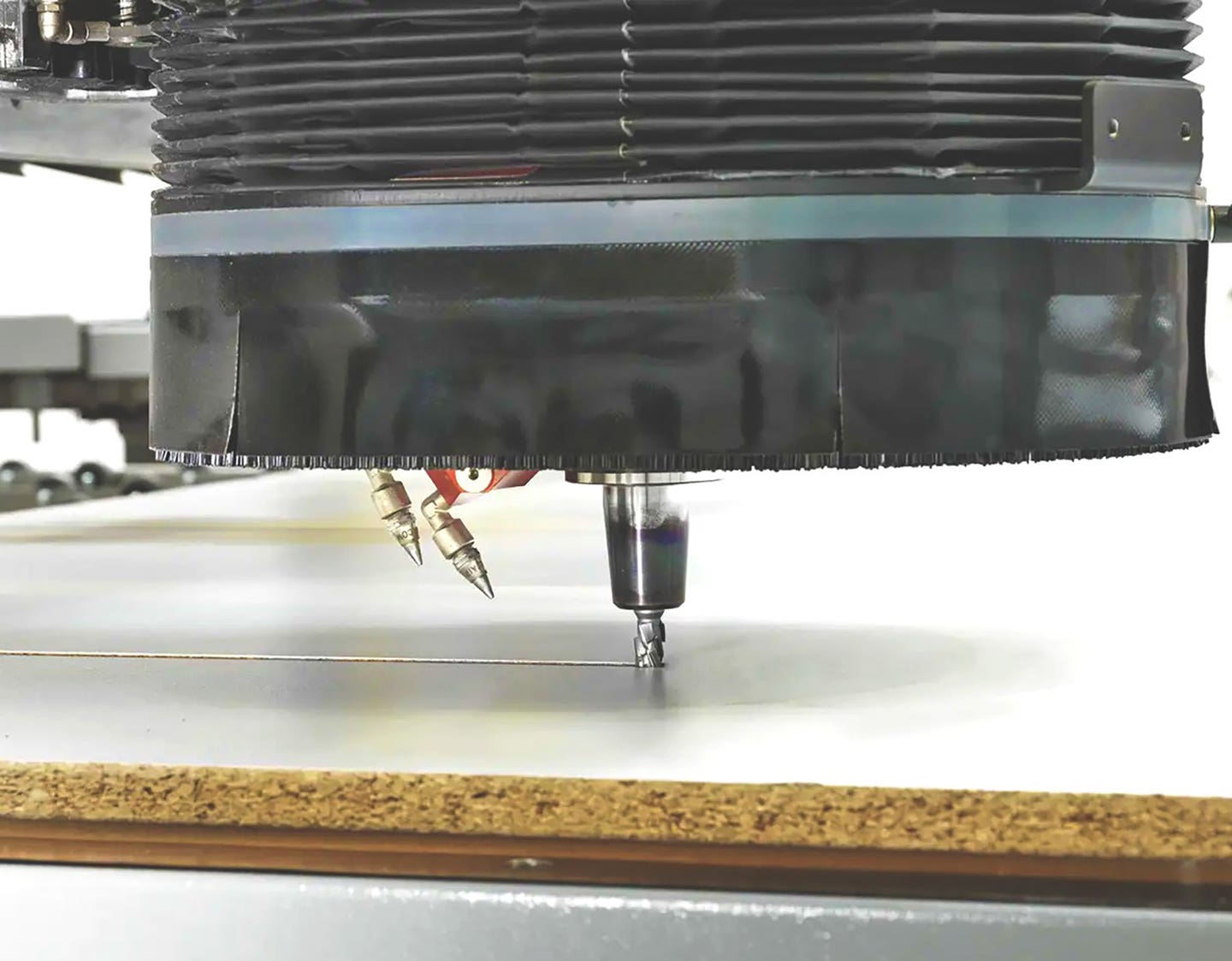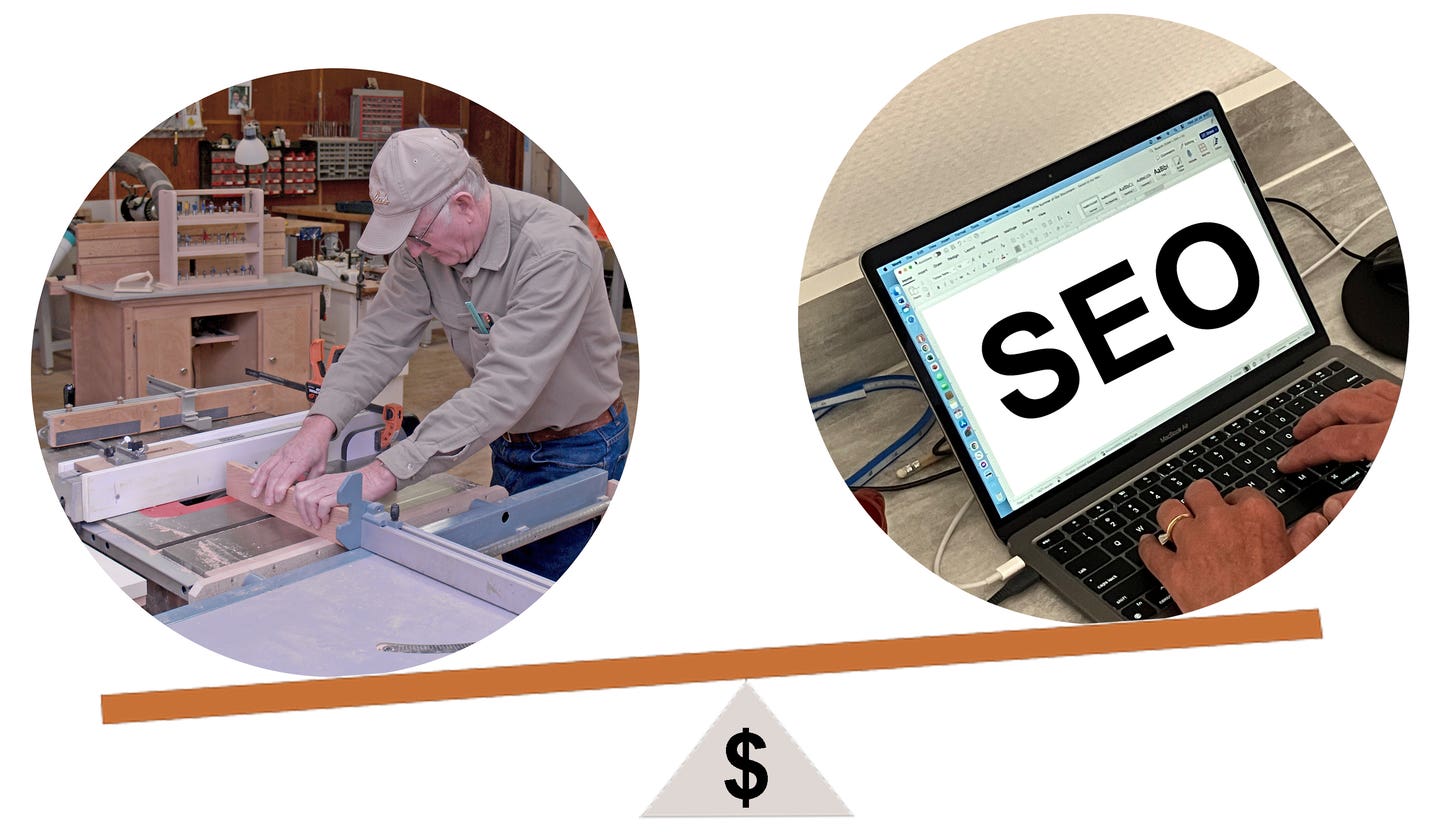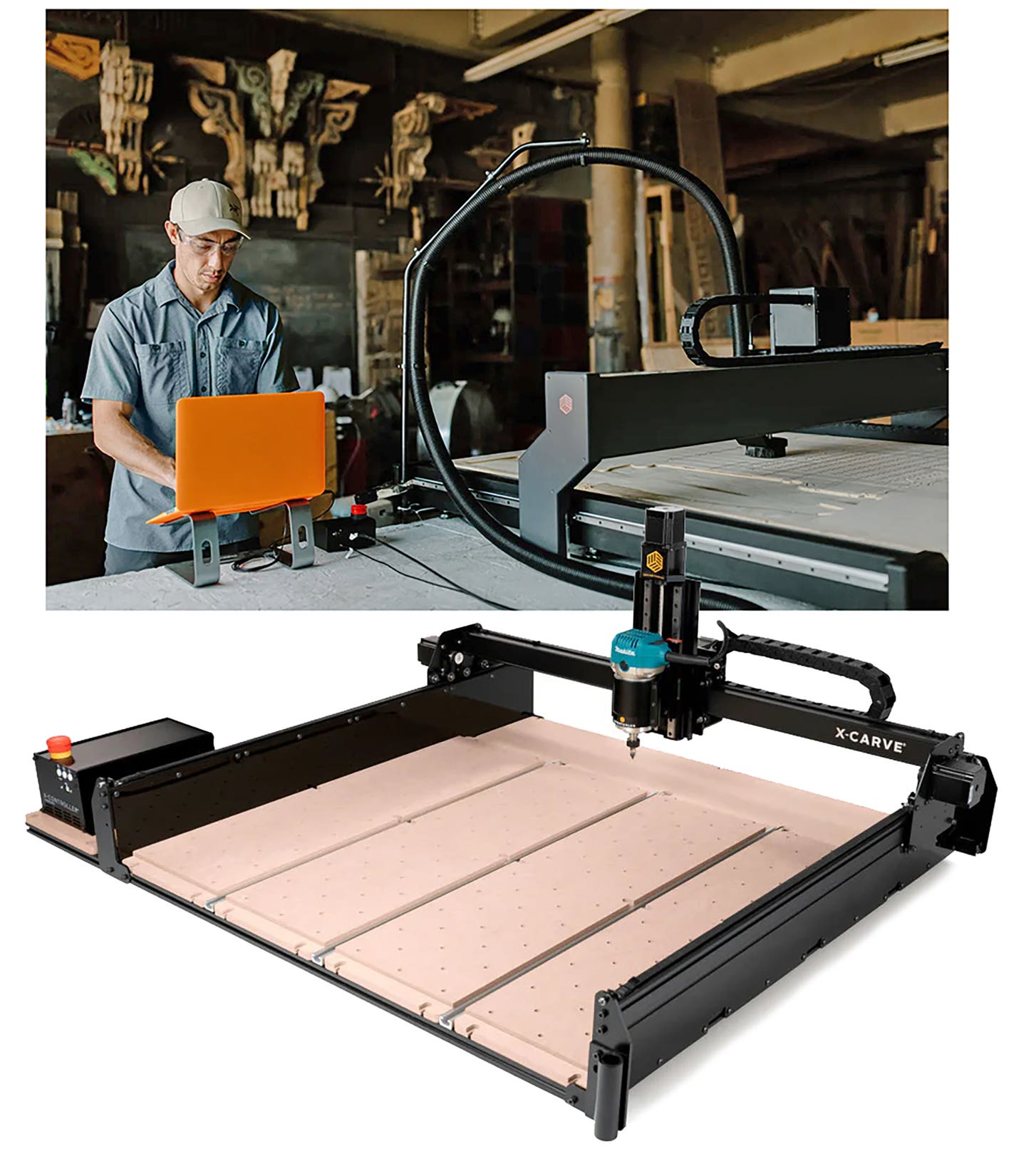Tiptop countertops
Any countertop is just a plain slab until it becomes a work of art. Give the craftsmen at The Southside Woodshop in Norfolk, Va., planks of wood and a variety…
Any countertop is just a plain slab until it becomes a work of art. Give the craftsmen at The Southside Woodshop in Norfolk, Va., planks of wood and a variety of tools and they’ll create a masterful sculpture by melding, carving and smoothing to reveal the natural beauty in every piece.
Owner Jud Dinsmore and his five “worker bees,” as he likes to call his faithful crew, craft functional solid woodtops for kitchens, offices, commercial spaces and anywhere a flat plain is needed. Their tops might look too beautiful to use, but forget that thought.
“We’ve subjected our finished surfaces to torture tests with acidic foods, household chemicals and tepid and boiling water without any sign of damage,” Dinsmore says. “Not only do our woodtops last a lifetime; they glow with a warmth and beauty not present in other materials so, once you see them, they almost sell themselves.”
Before Southside craftsmen set to work constructing a countertop, they need to first engage the client in deciding the basic elements like what type of wood to use. Unless there’s a preference, choosing isn’t easy. The company offers at least 20 species — from traditional maple and oak to exotics. American black walnut is a favorite right now.
“I like to source all the wood locally if I can to save transportation costs,” Dinsmore says, “but I’ll go anywhere to find what the customer wants. One of our primary suppliers is Rex Lumber in Doswell, Virginia.”
Manufacturing
After the client has selected a wood, the next decision is how the countertop will be constructed. Flat grain, edge grain and end grain (butcher block) are three options. Often a choice is based on the desire to highlight unique characteristics of a particular species or to expose the sapwood.
Flat-grain countertops are made with the best face showing. Southside takes care to select boards that are similar in color and grain (unless a mottled effect is desired). It uses 4” x 10” widths or random widths to add spark. They range in thickness from 1-1/2” to 2-1/2”.
“Flat-grain construction is the most popular,” Dinsmore says. “It’s traditional and is most commonly seen in furniture, but we do a lot of edge-grain tops, too, where the edge of the board faces up. This option generally offers more stability against warping or wood movement, though that doesn’t happen very often unless they happen to stand in floodwater for an extended time.”
Butcher-block construction provides the hardest cutting surface and is the most labor intensive, thus commanding the highest price. The thickness can range from 2” to 6” and a checkerboard pattern, using contrasting woods, is a popular option.
Then there’s one more decision: how to shape the edge. Most clients try to coordinate with their new or existing décor.
With wood species, style and edge profile established, stock is moved through the shop’s Mini Max panel saw and planer, Grizzly straight-line rip saw and Extreme joiner. Boards are rough cut about two inches longer than the countertop’s finished length, Titebond II glue is slathered on the edges and they’re placed in the panel clamp for eight to 10 hours. A trip through the SCM Sandya 300 two-head wide belt sander follows. The edges are shaped with a Festool router.
“Our next equipment purchase will probably be a CNC router,” Dinsmore says. “We can get along fine without one for now. We’ll wait until we increase our volume and run at full capacity.
“We sand and finish both sides of our countertops. The finish treatment depends on how the client wishes to use it. A bath of food-safe mineral oil is the best option if they’re going to cut directly on the surface. The oil is absorbed into the wood and provides limited stain and water protection. A wipe-on, wipe-off refresher coat every one to two months will probably be needed.”
For a more durable finish, several coats of a partial-grain fill topcoat are applied.
“We guarantee our products for a lifetime,” Dinsmore says. “Wood is a permanent, indestructible raw material so one should never question its durability. Any damage can always be repaired.”
All countertops are ready for shipment with a two-week turnaround. Employees build custom crates the exact size of each piece. The top is swathed in plastic to eliminate moisture transfer during transit and completely surrounded with a 1” Styrofoam liner. Usually, Southside uses a freight brokerage service for shipping. Charge to ship/transport one countertop anywhere in the country is usually in the $300 range. The price of the countertop itself depends on the wood, construction style and dimensions and ranges from $60 to $200/sq. ft.
Marketing
“When I launched this business eight years ago, I was afraid maybe I wouldn’t be able to make a particular countertop,” Dinsmore says. “I learned real fast that that was the least of my worries. Getting enough dealers to know me and see what I could do and gain a reputation was the big job. Eventually I worked up my list of kitchen cabinet dealers located in every part of the country, who keep me in mind to make custom countertops for their clients.”
Southside also generates business through its website, Facebook and Houzz pages. “It’s a constant battle to keep our social media sites up to date,” Dinsmore says. “Seems like I work on it one day and it’s outdated the next. In the past, we’ve also done several mailings and we send a monthly newsletter via e-mail. But nothing beats word of mouth.”
Though the shop can handle more work, jobs have been coming at a good pace and revenue has increased every year since inception. Ninety percent of Southside’s business is countertops, but it advertises as a full-service woodshop to the local market.
“We recently had a kind of random event happen; one of our client dealers in Massachusetts vacationed in Whitehall, Montana, and saw a countertop with our Southside logo. Guess there were words of praise all around. Really nice to know that our products are all over the country and sometimes get noticed in unexpected ways,” Dinsmore says.
Southside recently moved to a 6,000-sq.-ft. shop, its third location in eight years.
“I hope we don’t have to move again,” Dinsmore says. “It about killed the six of us. We hauled everything on a dump truck — wood, equipment, workbenches, everything. Luckily, our previous shop was only a couple miles from here or it would’ve been a lot worse.”
The boss and crew
Dinsmore, 40, was born in Dayton, Ohio. He’s a graduate of the College of William and Mary and has lived in Virginia since 2002 when he established a home building company with his dad. The real estate market was exploding and business was great. Then came the Great Recession and in a positive and organized way, Dinsmore began assessing possible future directions when opportunity knocked.
“My mom showed me a picture in a magazine of a butcher-block checkerboard countertop. She liked it and thought I might want to try making one. You bet I did. It was made of wood! That was when I decided to start up this company.”
Dinsmore strives to establish a good working atmosphere for his employees. “I’d like everyone to always — well, almost always — want to come to work.”
The team includes manager Ryan Phillips, woodworkers Ramon Gollayan, Tommy Danner and Noah Edwards and finisher Shawn Estness.
Dinsmore oversees the entire operation and is the point of contact for sales and fulfills quote requests. Like almost all small-business owners, he picks up where everyone else leaves off: keeps the equipment running, orders supplies, sweeps floors, cleans the bathroom, etc. At the end of the day, he heads home to be with his wife and four kids, unless he can sandwich in a game of Ultimate Frisbee or volleyball.
“Of course we’re here to make money,” Dinsmore says, “but so much of our satisfaction comes from interactions and praises from our clients. Knowing that our Made in America countertops — and shelving, to a lesser extent — are a part of their lives brings me back to work each day.”
Contact: The Southside Woodshop, 2409B Bowden’s Ferry Rd., Norfolk, VA 23508. Tel: 757-366-8828. www.customwoodcountertops.com
This article originally appeared in the February 2016 issue.


